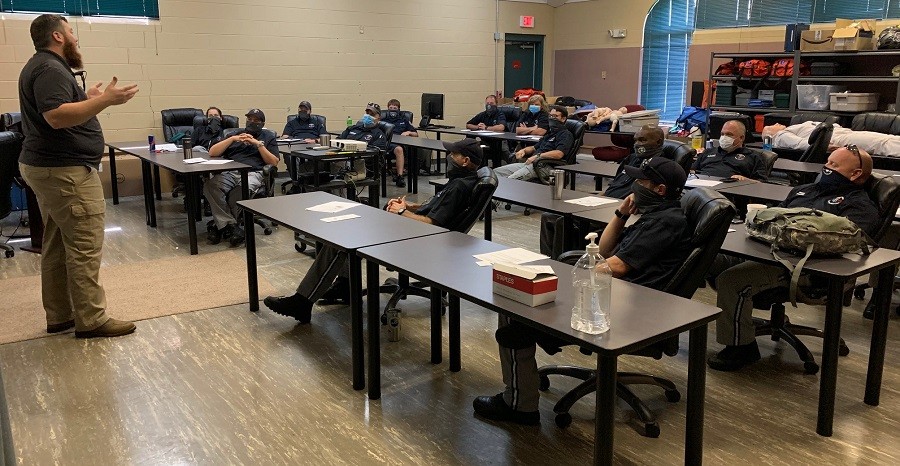Rutherford County, TN—Rutherford County Emergency Medical Services (RCEMS) will serve as a pilot agency for the “TN Save a Life-First Responder” substance abuse outreach program.
The program is an addition to the “TN Save a Life” program which utilizes Regional Overdose Prevention Specialists (ROPS) to increase public awareness, promote harm reduction, reduce stigma, and deploy rapid response resources for overdose spikes, etc.
The grant-funded effort seeks to “meet people where they are” and uses several techniques to build trust such as placing Naloxone (also known as Narcan) in the hands of community members. They also educate those with substance abuse issues and their family members on Syringe Service Programs, medication-assisted treatment, and other treatment resources that are available. To date, the program has had a documented 15,000 saves with the proper deployment of Narcan.
The “First Responder” branch of the campaign will enlist the help of first responder agencies such as RCEMS to deliver resources to those suffering from substance abuse in the community.
Outreach Coordinator for the Prevention Coalition for Success, Paramedic Joshua Crews, is providing this week’s training to RCEMS employees.
Crews, a Paramedic for 17 years, explains that many people who have substance abuse issues are not ready or able to stop using drugs; rather, the program and those that administer it correctly, are keeping those patients alive until “they can get the help they need.”
“It’s giving them a chance, instead of giving up on them,” said Crews. Crews stated though it may seem that these efforts support or encourage drug use, that could not be further from the truth. “This is what we call harm reduction.” Crews explains that harm reduction is “an incremental process, aimed at focusing on enhancing the quality of life and empowering those who use drugs to be the primary agents in reducing the harms of their drugs.”
So how does RCEMS contribute to the program? When RCEMS encounters an overdose patient, they administer care, but also provide the family or friends of the patient with resources to help the patient. They explain some common signs and symptoms of overdose, provide Narcan and educate them how to use it correctly, and describe the after effects and withdrawal symptoms. They also provide a list of specific treatment resources. Most importantly, says Crews, the medics offer sincerity. “Attitude is everything,” he said. “If you show that you actually care, the person is more likely to seek or accept treatment.”
Crews also mentions that part of the program involves distributing appropriate resources to high risk populations and changing the stigma of drug use. “Life can happen to anyone,” Crews acknowledged. “I’ve seen police officers, paramedics, judges, and others fall victim to drug use. Sometimes all it takes is one bad day.”
“After attending the training this week, I have a new perspective on substance abuse and how we might be able to assist,” said Supervisor of Education and Training Steve Hart. Hart says all employees will receive the training this week and begin implementing the program soon after. “If we are successful in our efforts, we might also engage other local first responder agencies to assist.”
Crews assured RCEMS that success stories would be shared. “If your interactions resulted in treatment, you will learn about it!”
To find out more about the “TN Save a Life” Program or the Prevention Coalition for Success, visit www.pc4s.org.


